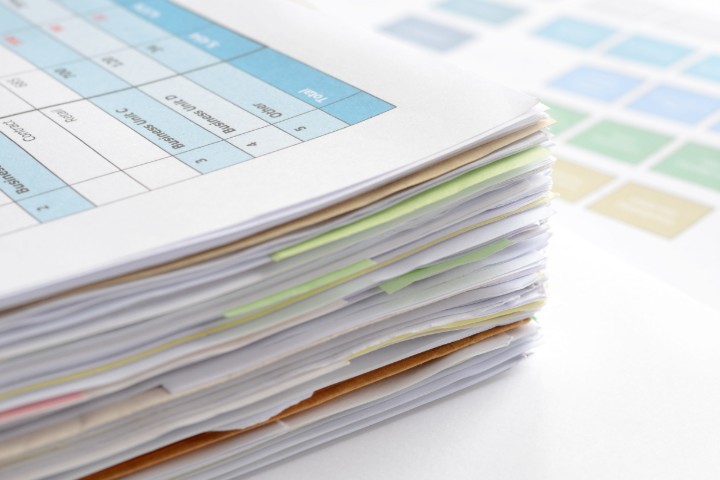With monthly bank statements, receipts from every purchase, quarterly retirement statements, annual tax returns and all other financial documents we receive, it is easy to accumulate what seems to be an unmanageable amount over time. You might find yourself asking if you really need to save all of them, and if not, when it may be safe to dispose of them.
Some financial documents should be kept and stored securely for an extended amount of time, and others can be either discarded immediately or shredded after a short period of time. Here is an overview of each category, as well as some additional tips for minimizing and safely discarding documents.
Financial documents to save for an extended time
Documents that prove you are the owner of the asset, such as home deeds, mortgage documents, auto titles, warranty certificates, and stock certificates should be kept for as long as you hold the asset. After you transfer ownership to someone else, you should shred the document if it is not handed over to the new owner (in the case the document is duplicated instead). Home and auto insurance policies should also only be discarded after you receive a renewed policy.
The IRS recommends you keep tax records for three years from the filing date or two years from the payment date, whichever is later. If you filed a claim for an overpayment resulting from a bad debt deduction or a loss from worthless securities, keep your documentation for seven years.
Consider purchasing a home safe to store these documents and other important paperwork like passports, birth certificates, marriage licenses and more. Depending on the kind you buy, it can protect the documents in case of a fire or burglary. You may also use a safety deposit box at a bank as an alternative.
Financial documents to shred after a short time
You should shred documents you no longer need to verify a payment, deposit, or purchase that contain your personal information, including name, address, phone number, credit card number (or a part of the whole number), signatures, Social Security number, and account number.
Examples of documents to shred include:
- Utility and credit card bills after you confirm payment
- Bank statements once you look through them and determine there is no suspicious activity
- Receipts once you match the purchase up against account statements
- Expired credit and debit cards
- Quarterly retirement plan statements once you receive your annual statement
Financial documents to toss
Some documents do not need to be saved for any period, and you do not necessarily need to shred them either.
Your bank, insurance company, or other organizations may send promotional booklets and flyers that do not contain any personal information. While you should shred the envelope or small slip of paper within – whichever contains your name and address – you do not necessarily need to shred the promotional content. Recycling these as soon as you are done with them will help keep your important documents organized and consolidated.
Additional tips for saving and shredding financial documents
Consider going paperless when possible, especially for documents you only need for a short time like bank statements, receipts, and utility bills. Be sure to create backups of your electronic copies and save them in multiple places.
It does not hurt to keep even documents that you should store in print form, such as home deeds, birth certificates, passports, and marriage licenses, in electronic versions too. Just be sure they are stored as securely as possible digitally.
Take advantage of the bank’s shred day. Occasionally, Bankers Trust and other banks will designate a “shred day” at their branches so customers can bring in documents to shred. This can be especially helpful for those who have accumulated a large number of documents and do not have a powerful shredder at home. Keep an eye out for the next shred day at your bank and bring in any documents you have on your “shred” list!








 Equal Housing Lender. SBA Preferred Lender. NMLS #440379
Equal Housing Lender. SBA Preferred Lender. NMLS #440379